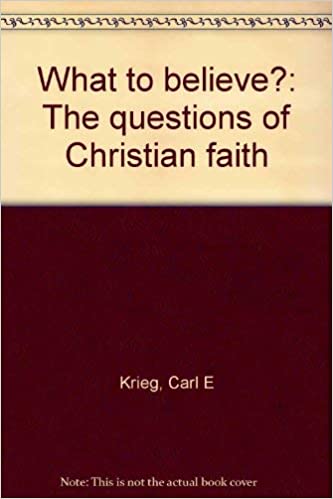Fifty Years Later – Part 15
What Lies Ahead?

Part 15: What Lies Ahead?
Past
Fifty years ago, What to Believe?? covered all the questions about what the future holds, as well as all the answers that have been offered through two millennia. What will happen? When will it happen? Who is involved and why? Given such a long stretch of time, every combination of variables has been suggested. There is a heaven. No, there isn’t. The Kingdom of God will come on earth. No, it won’t. Everyone will be judged. No, they won’t. Do we have an immortal soul that lives on forever? or are we reincarnated as something else? or do we die and then are resurrected at some future date? What happens when our sun burns out? Well…hadn’t thought that far ahead.
What I believed fifty years ago is not to be found in the book. What I remember is that none of the options seemed particularly reasonable and acceptable, but one did seem simpler. And that was Tillich’s understanding of the eternal now. Eternity is not to be conceived of as everlasting- forever in time- but rather as encounter with the transcendent God in the given Moment. There is no eternal soul, no coming back to life of a body once dead, no Kingdom of God here or anywhere, no heaven, no hell, but only the possibility of experiencing the Ground of Being, right here and right now. And that experience was more likely to happen as one worked for a better world, more likely both for you and for the one being helped.
Present
As the years moved along, this answer seemed less and less adequate in the face of undeserved suffering in the world, the epitome of which is the baby born into the world, experiences extreme pain, and dies after one day. Is the universe so amoral? Well, too bad all you innocent suffering people. Is that all we can say? The haunting nature of this simple question has led me to conclude that somehow, some time and in some way, God makes it all right, that the universe in which we exist is not amoral, but rather is sustained on a grounding of love.
This conclusion, I believe, is exactly what the disciples experienced in their life with Jesus. After his merciless death, something new arose, a new life beyond our understanding, a leading forth that inspired the disciples to speak of a new reality. It was Spirit, but not “only” spirit. It was an infusion of Truth and Reality and Love that defined the cosmos. The moral arc of the universe bends toward justice, according to Dr. Martin Luther King, Jr, and it does so because it is justice, just as it is Truth and Love.
It is beyond our human capacity to understand how Love is the ultimate reality when we see about us so much to the contrary. It is equally beyond our capacity to understand God as both the transcendent essence of Being as well as Loving Person. It is all a mystery, but, I think, nonetheless true.

